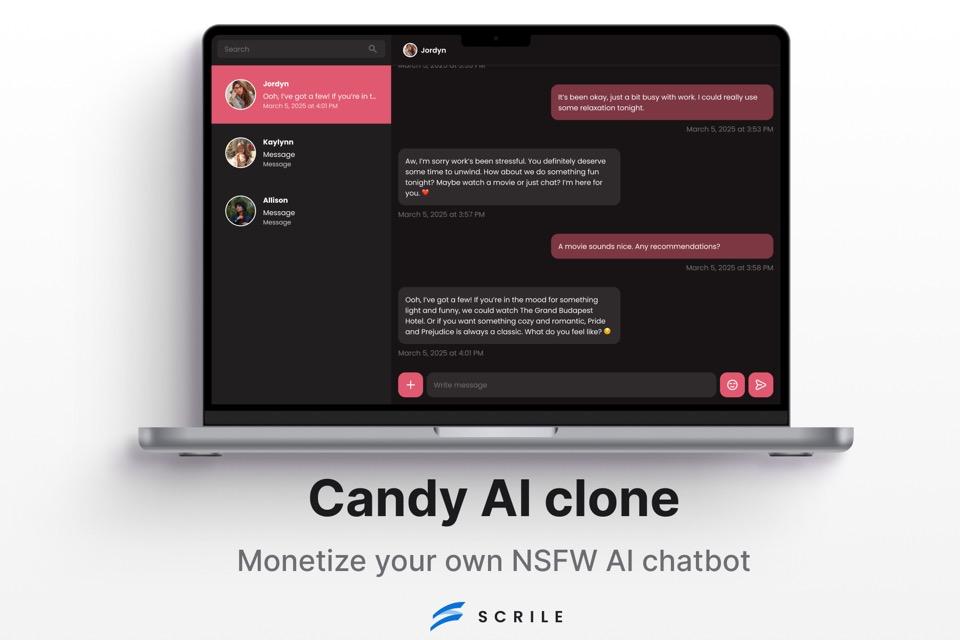Top-7 Ultimate Personal Chatbot Builders
Discover the top personal chatbot builders of 2026 and learn how to create your own AI assistant — fully customized, secure, and built to reflect your brand. From emotional support bots to fully private, monetizable AI personas, this guide shows how to launch a chatbot that’s truly yours.
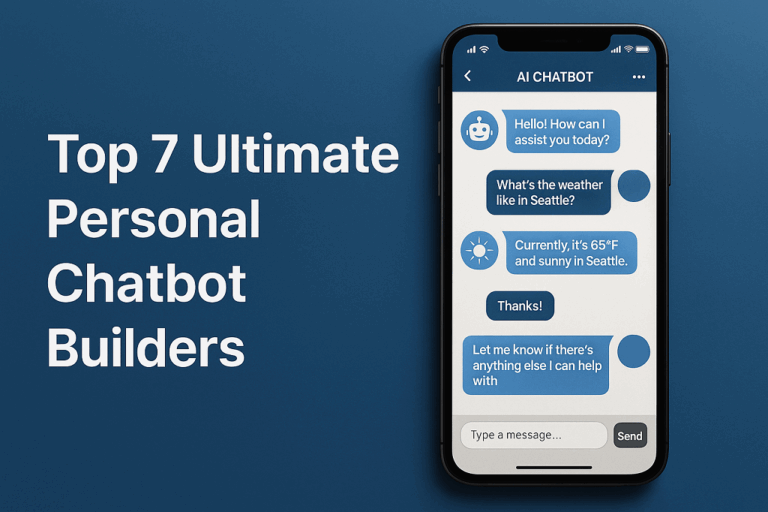
creating your own ai bot
A personal chatbot is more than just a toy that spits out answers. It’s a digital presence built to serve you — on your terms. Whether it’s a mental wellness companion, a flirty virtual partner, or a smart assistant that tracks tasks and schedules, these bots are everywhere. And they’re getting better.
The explosion of generative AI tools has turned what used to be a developer’s experiment into something anyone can launch. You don’t need to write code. You don’t need a massive budget. What you do need is the right builder — one that gives you the freedom to shape the bot’s tone, purpose, and personality.
Creators want bots that feel real. Businesses want bots that solve problems. Some just want a friend who remembers their name. It’s all on the table now.
Here’s how to choose a builder that actually fits your vision.
| 🤔 Your goal | 🧩 Builder type to look at | 💡 What to focus on | 🛠️ Tools that fit your case* |
|---|---|---|---|
| Smart “do-it-all” assistant for daily life/work | General-purpose AI model | Reasoning, broad knowledge, plugins/APIs, memory, voice | ChatGPT, Claude AI |
| Emotional support, journaling, AI companion | Hosted companion app | Mood detection, long-term memory, safe space for feelings | Replika, Chai App |
| Roleplay, storytelling, entertainment characters | Character playground | Persona creation, expressive style, flexible personality settings | Character.AI, Chai App |
| Quick test: “I just want to try a bot today” | Fully hosted, plug-and-play app | Zero setup, simple onboarding, free or low-cost access | Replika, Character.AI, ChatGPT (free tier) |
| Chatbot on my website (FAQ, leads, support) | No-code SaaS website chatbot | Training on your content, branding options, embeds, basic analytics | Botsonic, Tidio-style SaaS tools |
| Developer building complex flows & integrations | Developer framework / open-source stack | Visual flow builder, APIs, multi-channel support, custom logic | Botpress, ChatGPT / Claude API |
| Safe, ethical bot for sensitive conversations | Safety-first LLM | Guardrails, long context, clear policies on harmful or risky topics | Claude AI, ChatGPT |
| Monetizable, branded AI persona under your rules | Custom white-label chatbot platform / dev team | Full data ownership, custom UX, payments (subs, PPV, bundles), scalability | Scrile AI, other custom development services |
| Long-term product, not just a “toy bot” | Custom or hybrid setup (API + your platform) | Roadmap control, hosting choices, analytics, ability to iterate over time | Scrile AI, Botpress + APIs, SaaS + custom extensions |
What Makes a Chatbot Personal?

Not every bot that chats is a personal chatbot. The real thing does more than just answer questions — it listens, adapts, and sticks with you. It remembers your name, knows your vibe and doesn’t throw generic responses at you like a customer service rep. It actually feels like it’s yours.
So, what separates a personal bot from a business one?
Business bots are built for transactions. They guide users, close tickets, automate sales. They’re efficient, but cold. A personal AI bot, on the other hand, is about connection. It’s trained to carry long-form conversations, match your tone, and remember past chats to build context. It can nudge you to take a break, joke with you at midnight and even act like a journal, a coach, or a virtual partner — depending on how you shape it.
The real magic? Emotional nuance. Personal bots are starting to detect mood. Some respond with empathy. Others shift tone depending on what you say. You get to decide whether your bot is serious, snarky, gentle, or flirty.
Some tools even let you create entire personas — a shy poet, a strict mentor, a chaotic best friend. These aren’t just skins or voice changes. They influence behavior, pacing, and priorities.
That’s the goal: building a bot that doesn’t just react, but relates. And to do that, the builder you choose needs to offer more than templates. It has to give you control over memory, tone, and interaction style — without making you jump through technical hoops.
Self-Hosted, SaaS, or Custom-Built? Know Your Options
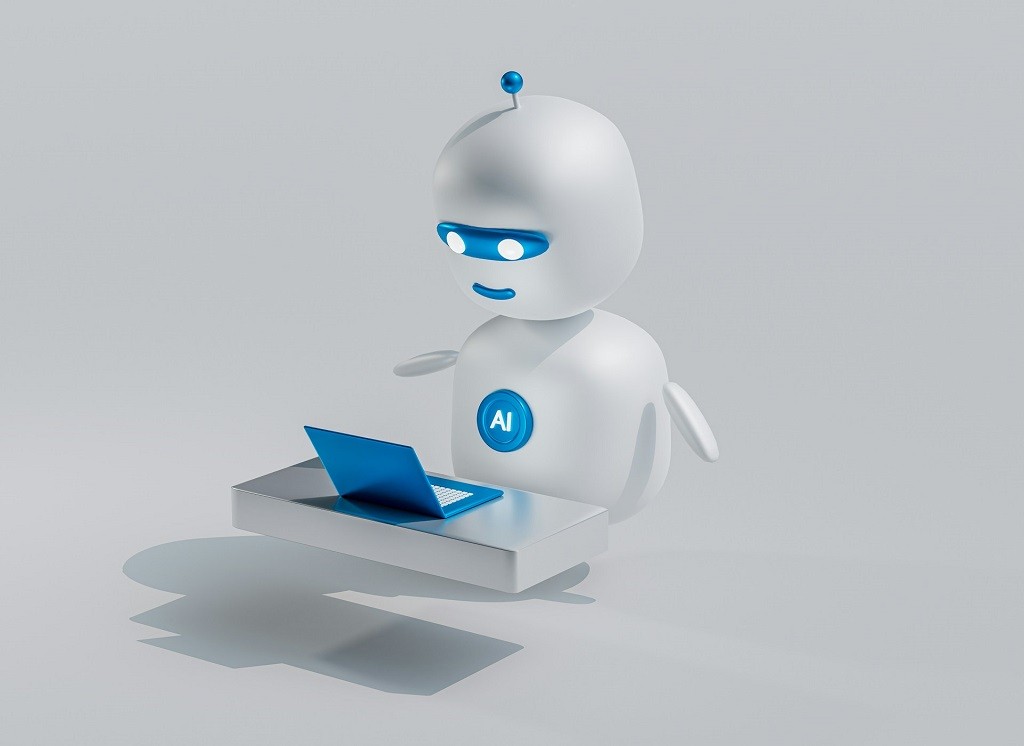
Before you start dreaming up a chatbot that chats like a friend, remembers your mood swings, or helps manage your day, there’s a core decision to make — how you’re going to build it.
Not all chatbot builders are created equal. Some offer plug-and-play convenience. Others give you deep customization. And then there’s the full-control option — where you call every shot, from data privacy to interface.
Let’s break it down:
- Fully Hosted Apps
These are your quickest wins. Platforms like Replika or Character.AI let you start chatting within minutes. No setup. No coding. But also — no real ownership. You’re renting space on someone else’s terms. Expect limited customization and almost zero data control. Great for casual use, not serious projects. - SaaS Platforms
These sit in the middle. Tools like Tidio AI or Botsonic let you train a chatbot, add it to your site, and access more advanced features like analytics or integrations. You pay monthly. You still don’t own the core infrastructure, but you do get flexibility in branding and functionality. This model works well for creators and small businesses who want more without going all-in on development. - Custom Development Services
This is where things get serious. When you go custom — either by hiring developers or partnering with a service like Scrile AI — you own it all. You decide the features. You choose the tone, the behavior, the data storage, even the server. Your chatbot becomes a product, not a project. This route takes longer, but the payoff is huge — especially if your chatbot is part of a business, subscription service, or privacy-sensitive use case.
Ultimately, your choice depends on the goal. Want a quick emotional support bot? Try a hosted app. Want to embed a smart assistant into your coaching brand? Go SaaS. Want to launch a truly unique, monetizable AI persona under your own terms? Go custom.
Table: Chatbot Development Options Compared
| Feature | Fully Hosted App | SaaS Platform | Custom Development |
| Setup Time | Instant | Quick (1–2 days) | Slower (weeks) |
| Coding Required | None | Minimal (or no-code) | Full custom dev |
| Branding Control | None | Partial (themes, logos) | Full — you design it |
| Data Ownership | Platform-owned | Shared/limited | 100% yours |
| Features | Basic chatbot use | Advanced (integrations, analytics) | Anything you want |
| Privacy & Security | Low | Moderate | High (you choose infra) |
| Cost | Free–Low | Monthly fee ($) | One-time/high upfront |
| Scalability | Limited | Moderate | Unlimited |
| Best For | Casual users | Small businesses, creators | Serious projects, monetization |
Top-7 Personal Chatbot Builders in 2026
If you’re thinking about creating your own AI bot this year, you’re not alone. Developers, creators, and entrepreneurs are racing to launch personal chatbot tools tailored to everything from productivity to companionship. But not every builder fits every need — and a lot of so-called “top tools” are more flash than substance. This section dives deep into seven options that actually work and are trusted by real users in 2026.
ChatGPT — Best for general-purpose AI with wide integration and plugin support
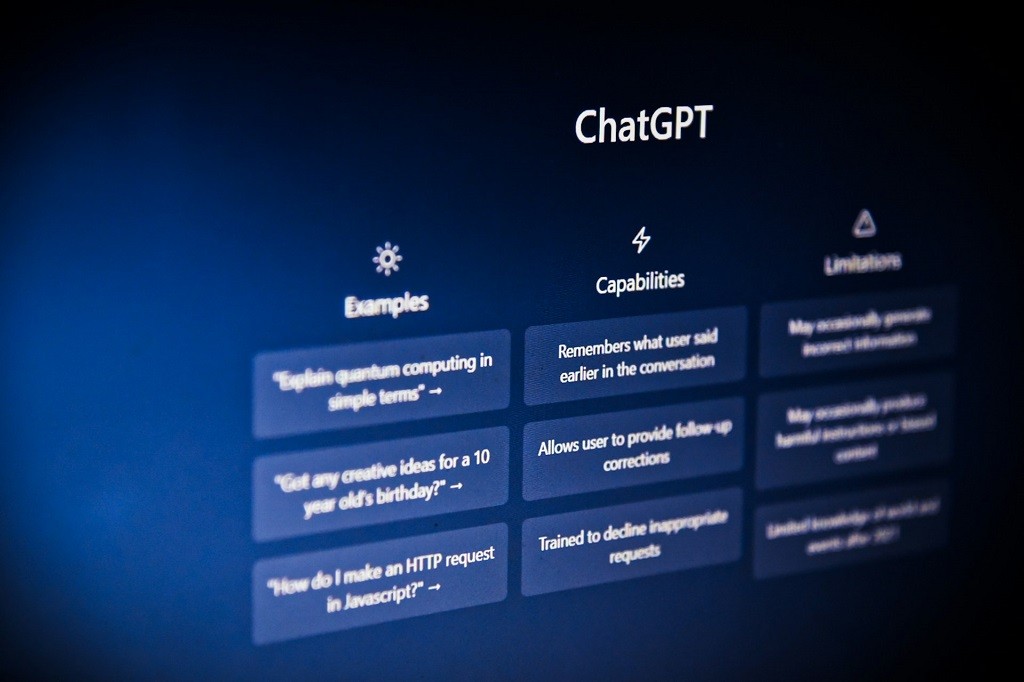
ChatGPT has become the go-to name in AI conversation. Developed by OpenAI, it’s evolved far beyond a simple chatbot and now supports plugins, memory features, voice interaction, and even code generation. For anyone looking to launch a personal chatbot with strong general intelligence, ChatGPT is the top contender — especially if you’re building on top of a robust foundation with serious natural language understanding.
Best for: Creators and developers who want a versatile, intelligent bot with access to APIs, tools, and plugin ecosystems.
Pros
- Understands a wide range of queries and tone
- Supports GPT-4, which includes memory and custom instructions
- Can connect with third-party tools via plugins
- Easy to embed into other apps or websites
- Offers both free and paid tiers
Cons
- Limited customization without OpenAI API or ChatGPT Pro
- Can be expensive at scale
- No full control over data retention policies
If you’re focused on flexibility, ChatGPT gives you room to grow. With the API or Pro plan, you can build interfaces around it, embed your personal chatbot in web tools, or experiment with GPT-powered agents. Pricing starts free, but most builders use the $20/month Pro tier or the OpenAI API, which is usage-based.
Replika — Best for emotional support and AI companions
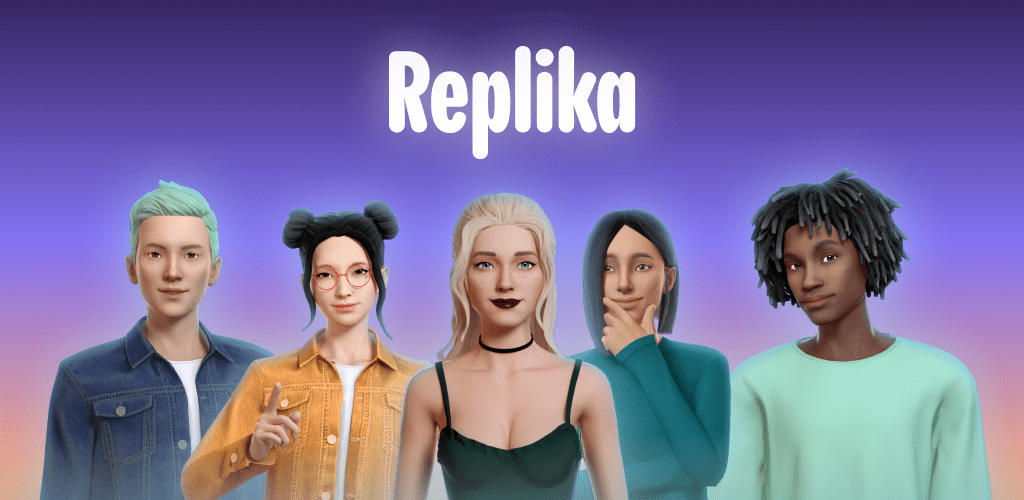
Replika isn’t about productivity or coding prompts. It’s built around emotion, conversation, and companionship. This personal chatbot has been quietly building loyal user bases who use it for mental health check-ins, late-night chats, and romantic or platonic companionship. It offers mood-tracking, journaling, and memory — making it feel more human than most bots on the market.
Best for: People looking for a deeply personal AI bot that mimics emotional presence, not utility.
Pros
- Emotional tone adaptation
- Real-time personality learning
- Journal-style conversation modes
- AR avatar and roleplay features
- Offers a dedicated mobile app
Cons
- Limited in task-based or productivity use
- Advanced features locked behind a subscription
- Occasional tone misfires in sensitive conversations
Customization in Replika is centered on emotional nuance. You can name the bot, select personality traits, and train it through conversations. Pricing starts free but meaningful bonding features (romantic, NSFW, deeper memory) are behind the $19.99/month Pro plan. If you’re building a personal chatbot for intimacy or companionship, Replika’s architecture sets the bar.
Character.AI — Best for roleplaying and entertainment personas
Character.AI is like stepping into a multiverse of personalities. From anime legends to philosophers, you can talk to pre-made characters — or create your own from scratch. It’s built for entertainment and fantasy, not facts. But if your goal is creating your own AI bot with style and character, this is where to start playing.
Best for: Fans of roleplay, fiction, or entertainment who want a chatbot that feels more like a character than a tool.
Pros
- Huge catalog of user-generated bots
- Easy persona creation tools
- Highly expressive responses
- Voice integration on mobile
- Completely free to use (as of now)
Cons
- No API or export — it stays on their platform
- Poor factual accuracy
- Some moderation issues in character content
Customization is focused on voice, style, and personality, not backend controls. You can build characters from scratch with specific speech patterns and behavioral traits. There’s no monetization path here, but as a free playground for testing personal chatbot personalities, Character.AI is unmatched.
Chai App — Best for mobile-first casual chatbots with personality
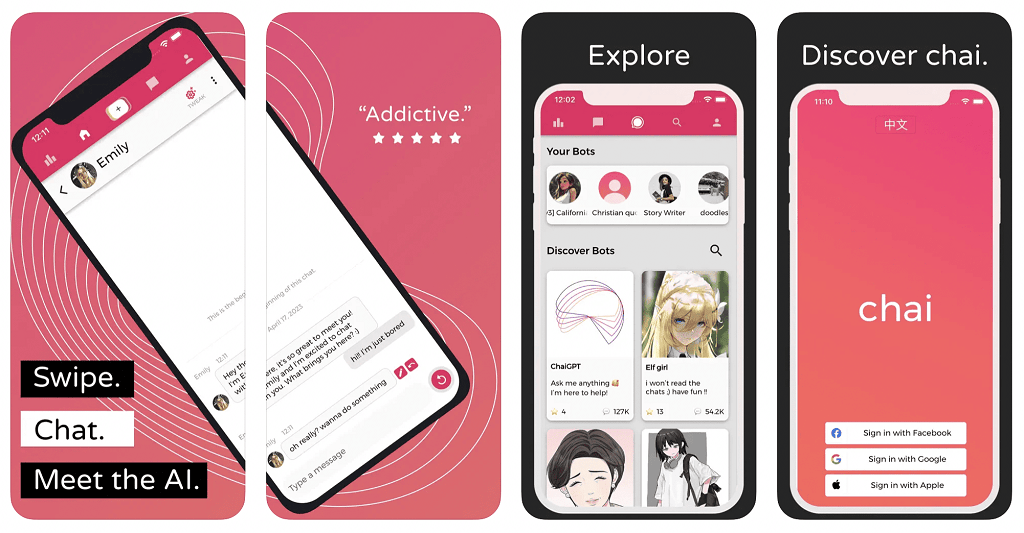
Chai App isn’t trying to be your business assistant. It’s your entertainment fix, your flirty banter partner, or your late-night debate bot — all from your phone. With a strong focus on interactive storytelling and lightweight chat companions, Chai has carved out a niche as a purely personal chatbot playground, especially among younger users.
Best for: Users who want quick, fun, mobile-friendly chats with customizable bot personalities.
Pros
- Slick mobile-first interface
- Endless supply of quirky AI characters
- User-created bots available to chat with
- Casual, personality-driven interactions
- Active community with ratings and feedback
Cons
- Limited depth or memory compared to larger models
- Premium tiers needed for unlimited messages
- Not designed for serious tasks or productivity
Customization is all about vibe — not functions. You can tweak your bot’s tone, personality, and behavior, but don’t expect integrations or data handling. Chai runs on a freemium model, with $13.99/month for unlimited messages and priority access. If your idea of a personal chatbot leans more “fun” than “functional,” Chai is an easy entry point.
Claude AI — Best for safety-conscious, ethical chatbot development
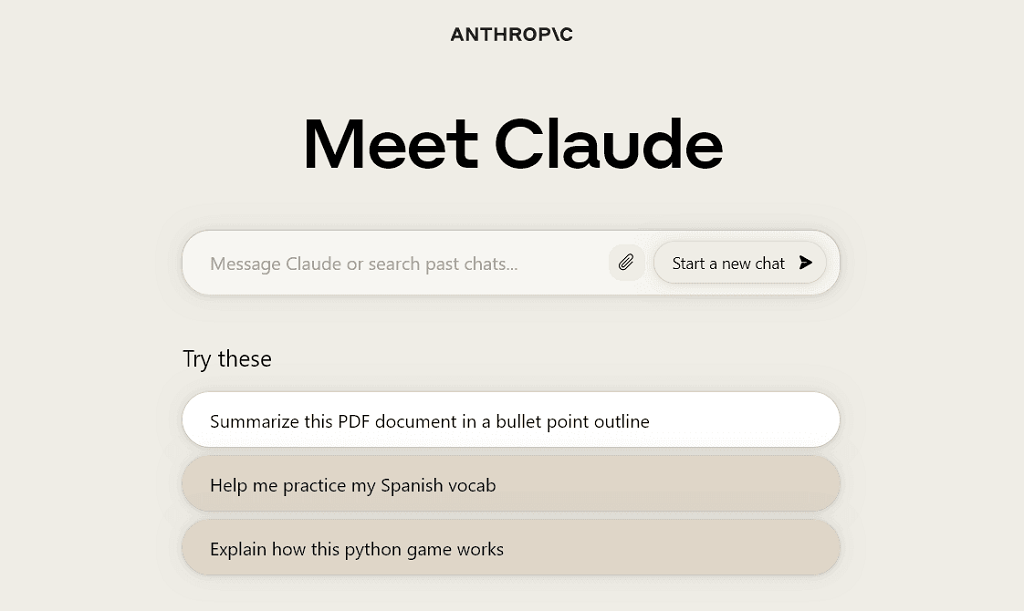
Claude AI (by Anthropic) is one of the most trusted models when safety and alignment matter. This isn’t just another chatbot — it’s built to be cautious, respectful, and steer clear of toxic or misleading responses. Claude supports long context windows, making it excellent for thoughtful chats, productivity, and memory-based interactions.
Best for: Creators or developers who want a powerful but ethical personal chatbot with safeguards against risky outputs.
Pros
- Designed with constitutional AI and safety rules
- Handles long context and structured thinking
- Great for summarization, planning, and reflection
- Multiple tiers: Haiku, Sonnet, and Opus for flexibility
- Claude Opus rivals GPT-4 in reasoning tests
Cons
- Currently limited API access
- Less playful or emotive than other bots
- No built-in personalization interface for casual users
Claude’s customization relies on prompt engineering and API-level tweaks — ideal for developers, not casual users. Pricing varies based on tier and usage, with Claude Haiku being the lightweight option. For those building personal chatbot systems where safety, memory, and clear logic are essential, Claude leads the pack.
Botpress — Best for developers building chatbot workflows with flexibility
Botpress is for people who want full control. It’s not a casual plug-and-play tool — it’s a development framework that gives you the building blocks to shape conversations, triggers, APIs, and integrations exactly how you want them. If you’ve got a technical mindset or a dev team behind your chatbot idea, Botpress unlocks a ton of power.
Best for: Developers and technical founders who want to build advanced chatbot logic and workflows from scratch or with open-source flexibility.
Pros
- Open-source core with developer-first tooling
- Built-in NLU engine for advanced intent handling
- Visual flow editor and modular event system
- Supports multi-channel deployment (web, Messenger, WhatsApp, etc.)
- Scalable and extensible with custom code
Cons
- Steep learning curve for non-developers
- Requires hosting and infrastructure setup
- Limited out-of-the-box personality or UI styling
Botpress has a free community version and a paid cloud offering (pricing starts at $899/year). It’s not for quick launches, but it’s one of the most powerful options if you want to own your stack and create logic-heavy chatbots with freedom.
Botsonic — Best for no-code custom chatbot building for websites
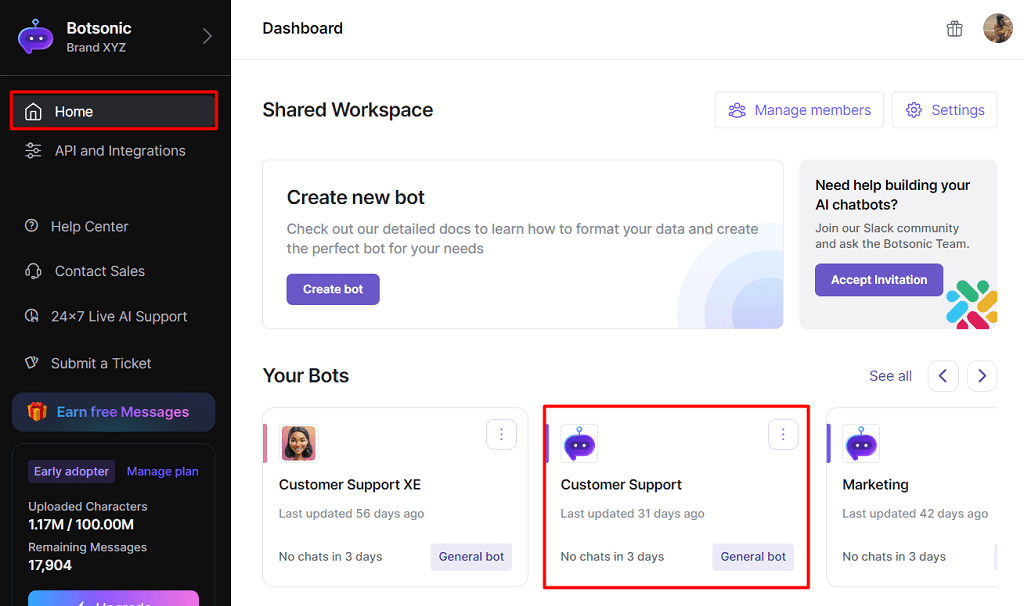
Botsonic is the sweet spot for marketers, small business owners, and product teams who want AI on their site without touching a line of code. It connects to your docs, websites, or product help pages, and spins up a chatbot that can actually answer real questions — with your tone, branding, and content.
Best for: Teams that want a website chatbot trained on their own content, with no coding needed.
Pros
- Simple, intuitive no-code interface
- Trains on your website or uploaded files
- Fully brandable UI and behavior options
- Hosted and embedded in minutes
- Useful for sales, support, and product onboarding
Cons
- Less flexibility than developer-first platforms
- Responses can be generic if source content is weak
- Limited memory or deep personality tuning
Botsonic runs on a monthly subscription model starting at $49/month. It’s ideal for launching chatbots that speak your brand language and guide users on your site — all without ever calling your dev team. If you want quick results and easy deployment, this one’s a solid pick.
These seven tools aren’t just chatbot kits — they’re launchpads for whatever vision you have in mind. Whether you want deep emotional AI, lightweight mobile chats, developer-grade flexibility, or simple no-code deployment, there’s something here for every type of creator. Choosing the right personal chatbot builder comes down to one thing: how much control, customization, and personality you want your AI to express.
Scrile AI: Build Your Personal Chatbot from Scratch
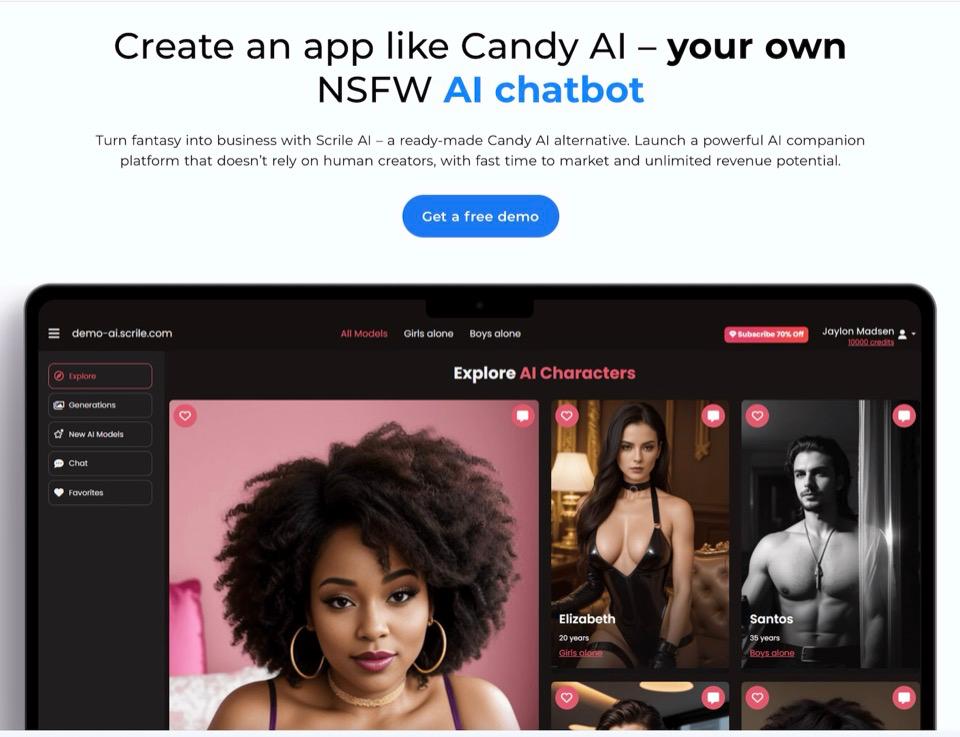
When off-the-shelf tools feel limiting, it’s time to think bigger. Scrile AI isn’t just another chatbot builder — it’s a full-stack development service for those who want total control over their chatbot’s logic, personality, and long-term roadmap. Whether you’re building a wellness coach, a dating persona, or a business assistant, Scrile AI is designed to help you create something truly yours — not just tweak someone else’s model.
You’re not stuck with generic templates here. With Scrile AI, every element is built to fit your audience — and your goals. Want multilingual NLP for global reach? Built-in. Need a custom tone that shifts with emotional context? Possible. Looking for tools that let you monetize or host the chatbot independently? All available.
Scrile AI is ideal for:
- Consultants and therapists building secure, private support bots
- Adult content creators who want their own branded AI persona
- B2B companies offering smart customer or lead-gen chat on their sites
- Influencers creating AI-based fan engagement experiences
What Scrile AI Offers:
- Custom persona development (tone, name, behavior)
- Multilingual natural language processing (NLP)
- White-label design (your branding, not theirs)
- Secure hosting with GDPR-compliant options
- Advanced analytics: engagement heatmaps, query logs, retention tracking
- Monetization tools: pay-per-message, subscription, freemium logic
Scrile AI also supports integration with your own website, app, or member portal. There are no forced UI elements, no branding lock-in, and no unnecessary features bloating your system.
If you’ve been thinking about creating your own AI bot but didn’t want to settle for cookie-cutter tools, this is where you stop compromising. Scrile AI doesn’t just hand you a dashboard — it works with you to develop the exact architecture your use case demands.
Whether you’re launching a personal chatbot for fans or building a long-term product for clients, Scrile AI gives you the technical muscle and creative room to actually own it.
What’s Next: The Future of Personal Chatbots in 2026 and Beyond
Personal chatbots are already powerful. But in 2026 and beyond, we’re heading into something deeper — bots that don’t just respond, but remember, feel, and evolve.
Voice is the next frontier. Expect chatbots to move from typing to talking, with humanlike tone recognition and real-time audio replies. They’ll not only process your words but understand your mood, urgency, and intent — turning every interaction into a smoother, more intuitive exchange.
Then comes memory. Future personal chatbots will remember past conversations, your preferences, even your emotional state over time. Think of a bot that knows when you’re stressed before you say anything — and adjusts its tone or recommendations accordingly.
Multimodal AI is already here in early stages. Within a year or two, personal chatbots will be able to see — analyzing images, video, or even your facial expressions through a webcam. Combine that with voice and text, and you’re not just chatting anymore. You’re interacting with a full digital presence.
This shift isn’t limited to tech fans. Coaches, streamers, adult creators, therapists, marketers — anyone building an audience or offering a service — will soon use fully autonomous digital versions of themselves to scale and monetize their time.
The future of personal chatbots? It’s not science fiction. It’s the next step in how humans connect, work, and grow — and the smartest ones will start building now.
Conclusion: Your Bot, Your Rules
A personal chatbot isn’t something you rent. It’s something you define. From how it speaks to how it handles your data, every decision should reflect your intent — not someone else’s preset.
The tools in this article give you a range of paths to follow. Some are fast to launch. Others offer deep customization. A few are built for conversation. Others are focused on workflows. But all of them prove one thing — this isn’t some distant future. People are building chatbots that sound like them, remember what matters, and support what they do best.
If you’re building for connection, privacy, performance, or creative expression, it pays to work with tech that doesn’t stand in your way. That’s what ownership means: no surprises, no censorship, and no limitations on how your AI evolves.
Scrile AI gives you that level of control. It’s a development service, not a tool with settings. You define what’s built. You set the goals. And you get a chatbot that’s ready for real users — not just play.
If that’s what you want, talk to the Scrile AI team today. They’ll build the system your vision actually deserves.
FAQ
What is a personal chatbot?
A personal chatbot is an AI-powered virtual assistant designed to communicate in a human-like way. But unlike general-purpose bots, it’s tailored to your style, goals, and context. Whether it’s answering questions, carrying on a conversation, journaling with you, or helping manage tasks — it reflects your voice, not someone else’s script. Many are built to remember past conversations, adjust tone, and offer emotional or practical support. You can use it for companionship, productivity, or even customer engagement if you run a brand.
Is there a private AI chat?
Yes — and it’s more important than ever. Private AI chat means the bot runs on servers you own or trust. That can include local hosting or encrypted cloud setups where you’re in control of how data is stored and processed. Scrile AI offers this model. Their team can build bots with masked payments, secure hosting, GDPR compliance, and zero third-party data access.
What is the best AI chatbot for personal use?
It depends on your needs. Claude AI is known for its conversational smoothness and strong ethical focus. Replika supports emotional connections. But if you need full control — from branding to monetization — Scrile AI builds from scratch, tailored to you.
Read also
| Article | Why it’s worth reading |
|---|---|
| Astrology AI: Free AI Astrology Chatbot & Birth Chart Generator | If you’re considering an astrology product, this guide outlines the core feature set — birth charts, chat flows, and user expectations from an “AI astrologer” — so you can design a solid MVP. |
| Top 5 AI Astrology Predictions Sites | Once you know the basics, this comparison shows how leading AI astrology sites package predictions, monetize traffic, and differentiate their offers, helping you find your own angle. |
| AI Fortune Teller: Online Fortune Telling With AI Predictions | If you want to go beyond classic astrology, this article explores fortune-telling formats (love, career, luck) and how to turn them into engaging, repeatable AI experiences. |
| Free AI Tarot Reading: Top 5 Apps | Tarot is a natural extension of astrology. This piece breaks down how top apps show spreads, explain card meanings, and gently lead users towards paid readings or subscriptions. |
